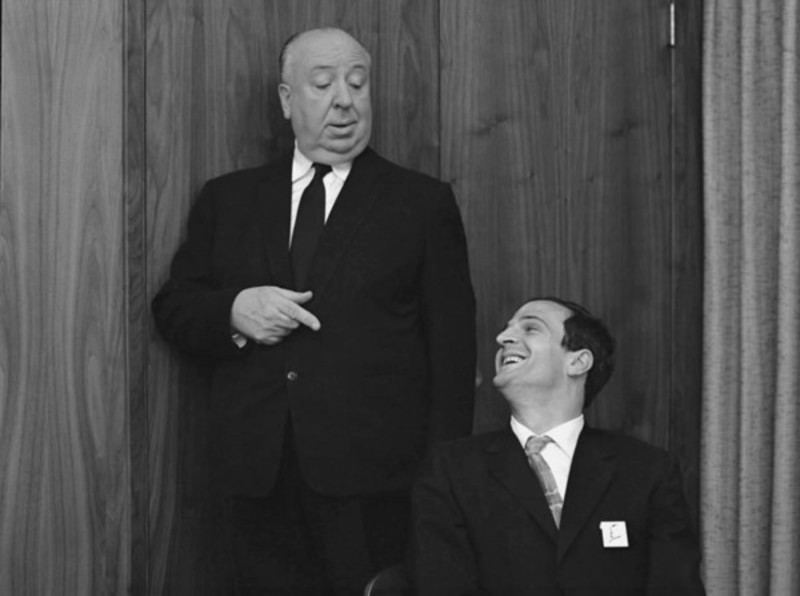
Hitchcock/Truffaut (2015) / Drama
MPAA Rated: PG-13 for suggestive material and violent images
Running Time: 79 min.Cast: Martin Scorsese, David Fincher, Wes Anderson, Richard Linklater, James Gray, Peter Bogdanovich, Olivier Assayas, Kiyoshi Kurosawa, Paul Schrader, Bob Balaban (narrator), Matthieu Amalric (narrator), Arnaud Desplechin
Director: Kent Jones
Screenplay: Kent Jones, Serge Toubiana
Review published January 14, 2016
 "Hitchcock/Truffaut" (aka, "Cinema According to Hitchcock") is a book
I'm very familiar with, having originally been mandatory ready for a
Film Studies class on Alfred Hitchcock I took when I was in college.
Hitchcock had been my favorite director at that time, and I was so
fascinated by getting a "director's commentary" from the man himself
about the making of many of my all-time favorite movies that I read
the most of it before we even began to discuss it for the first time
in class. I still have the book somewhere in a place I've
forgotten several moves ago, but was so influenced by it that when I
stumbled across it again at a used bookstore, I bought another copy,
figuring I'd rather have it to read whenever I'd like rather than wait
however many years in order to stumble across it again when looking
through old boxes in the garage.
"Hitchcock/Truffaut" (aka, "Cinema According to Hitchcock") is a book
I'm very familiar with, having originally been mandatory ready for a
Film Studies class on Alfred Hitchcock I took when I was in college.
Hitchcock had been my favorite director at that time, and I was so
fascinated by getting a "director's commentary" from the man himself
about the making of many of my all-time favorite movies that I read
the most of it before we even began to discuss it for the first time
in class. I still have the book somewhere in a place I've
forgotten several moves ago, but was so influenced by it that when I
stumbled across it again at a used bookstore, I bought another copy,
figuring I'd rather have it to read whenever I'd like rather than wait
however many years in order to stumble across it again when looking
through old boxes in the garage.